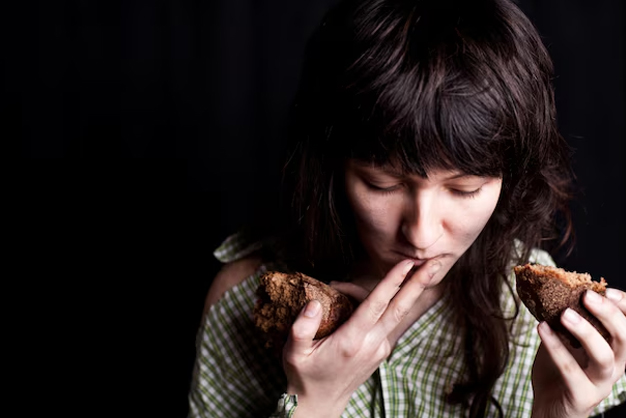Ever wondered why your period arrives early during finals week or why that late-night Netflix binge seems to make your cramps worse? The answer lies in three interconnected systems that most women never consider: your sleep cycles, stress hormones, and blood sugar levels. Dr Ridhima Khamsera, clinical dietician, notes that your period isn't just a monthly inconvenience. It is a monthly report card on how well you're taking care of your entire body. She suggests how working on three key aspects can help you take control of your menstrual health and reduce period cramps.
Poor Sleep, Stress, Sugar Levels: Villains For Your Period Cramps
Small changes in some areas can mean the difference between dreading your period and barely noticing it arrives, adds Dr Khamsera. And, the three areas are:

1) Poor Sleep
Here's something your health class never taught you: your reproductive hormones are manufactured primarily between 10 PM and 2 AM. During deep sleep, your body produces luteinizing hormone (LH) and follicle-stimulating hormone (FSH) – the master controllers of your menstrual cycle. When you consistently sleep less than seven hours or go to bed after midnight, you're literally short-changing your hormone production.
But here's the kicker: even one night of poor sleep can shift your cycle by 2-3 days. This happens because sleep deprivation increases cortisol, which directly suppresses reproductive hormone production. It's why shift workers often experience irregular periods – their circadian rhythms are constantly fighting their hormonal needs.
Don't Miss:What Are Period Stigmas And How To Combat Them: Know From Health Expert
2) Stress
Chronic stress doesn't just make you feel overwhelmed; it hijacks your entire endocrine system. When cortisol levels spike, your body prioritizes survival over reproduction, literally stealing progesterone (your calming, cycle-regulating hormone) to make more stress hormones. This is called "pregnenolone steal," and it's why stressed women often experience painful, irregular periods or even missed cycles entirely.

3) Sugar Levels
Sugar amplifies this chaos. Blood sugar spikes trigger insulin release, which increases testosterone production in your ovaries. Higher testosterone levels can delay ovulation, shorten your luteal phase, and intensify PMS symptoms. This explains why women with PCOS (characterized by insulin resistance) often struggle with irregular cycles.
Here's a fascinating discovery: women who eat high-sugar foods after 3 PM are 40% more likely to experience severe period pain. This happens because late-day sugar consumption disrupts melatonin production, which not only affects sleep quality but also acts as a natural anti-inflammatory. Less melatonin equals more prostaglandins – the compounds responsible for menstrual cramps.
“The solution isn't perfection; it's understanding these connections. Prioritizing sleep before 11 PM, managing stress through breathwork or movement, and eating balanced meals can transform your menstrual experience,” wraps up Dr Ridhima Khamsera.
If you liked the story, please share it. For more such articles, stay tuned to HerZindagi.

Take charge of your wellness journey—download the HerZindagi app for daily updates on fitness, beauty, and a healthy lifestyle!
Comments
All Comments (0)
Join the conversation